Running Effective Meeting
- Running Effective Meeting
- What is a Effective Meeting?
- Typical Problems with Meetings
- What is an effective meeting then and what makes it effective?
- Four principles to an effective meeting
What is a Effective Meeting?
-
I think we've all been in a meeting, probably in the last week, where you kind of came out of it thinking it wasn't the best use of my time or that wasn't that effective.
-
The stats today tell us that only 50% of the time we spend in meetings is considered effective. That means half the time we're spending a meetings, we don't feel like we're adding any value. And along those lines, at least in the US, 37 billion dollars is spent on bad meetings.
-
So, bad meetings are rampant in society today and for us there's actually ten core areas that we think bad meetings fall into. We essentially call it "Bad Meeting Bingo."
Typical Problems with Meetings
-
For us there's a couple of these that really resonate out there. Specifically areas like focus; do meetings have fluid borders. You really have no purpose coming in, you just show up. You're like, so what are we talking about today?
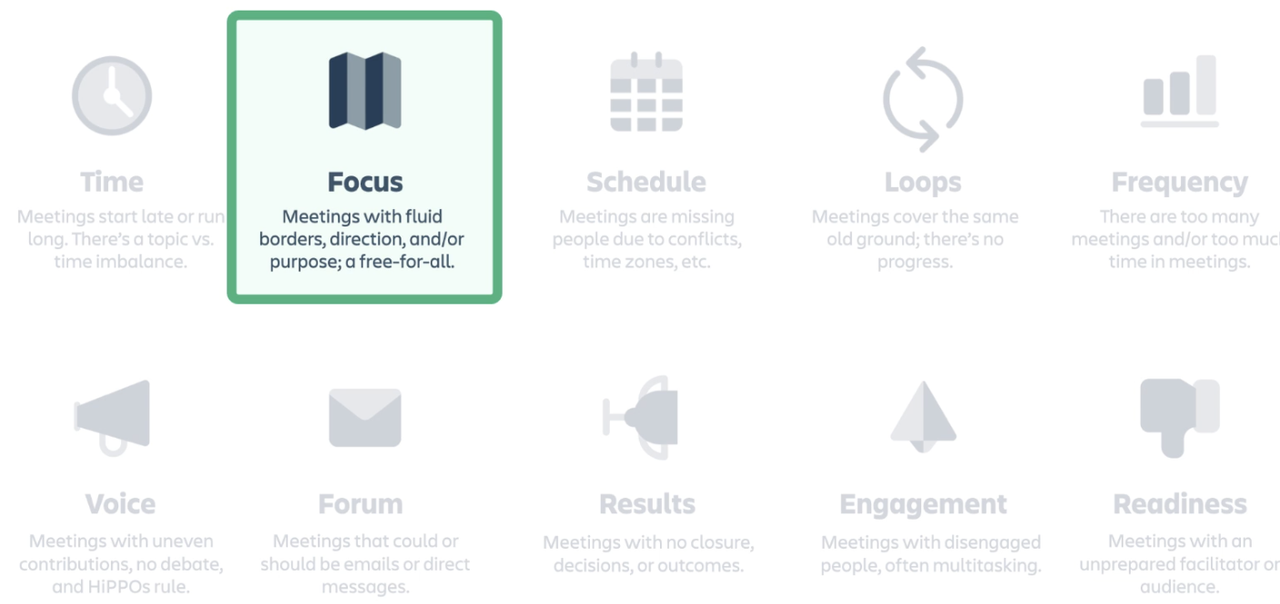
-
Things like loops. Do we have like this Groundhog's Day feeling where we just kind of keep going back to the same topic over and over again, like "Oh we talked about this last time we're gonna talk about it again?"
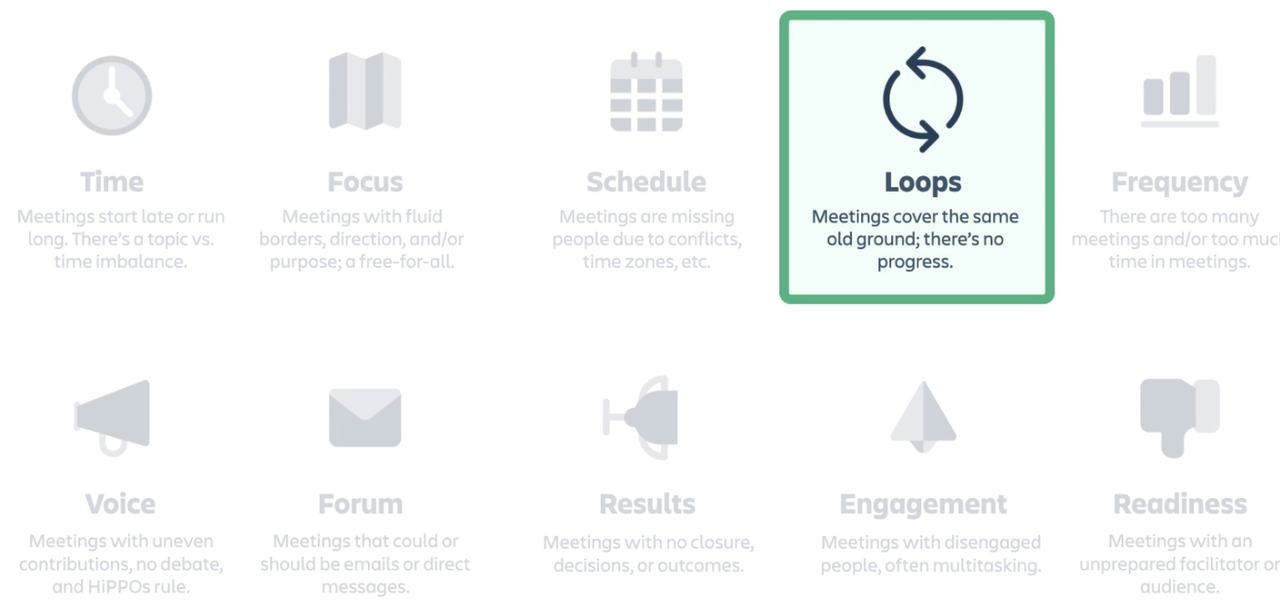
-
Even things like readiness. And not just on you the facilitators part, but on your participants. Are we coming into the meeting ready to have this meeting? Have we done the pre-work? Have we actually come in prepared to actually have a good conversation?
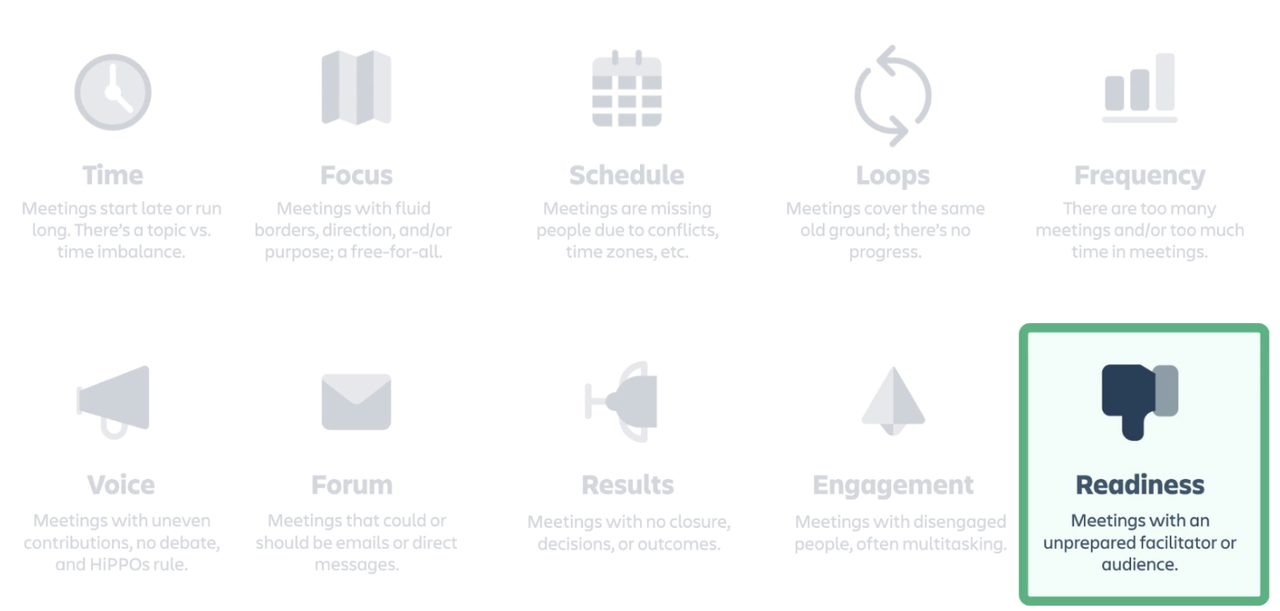
-
And ultimately one of the worst problems out there is results. Do we leave a meeting not making any decisions? Not coming to any kind of conclusion on how we want to move forward? Do we not hit an outcome?
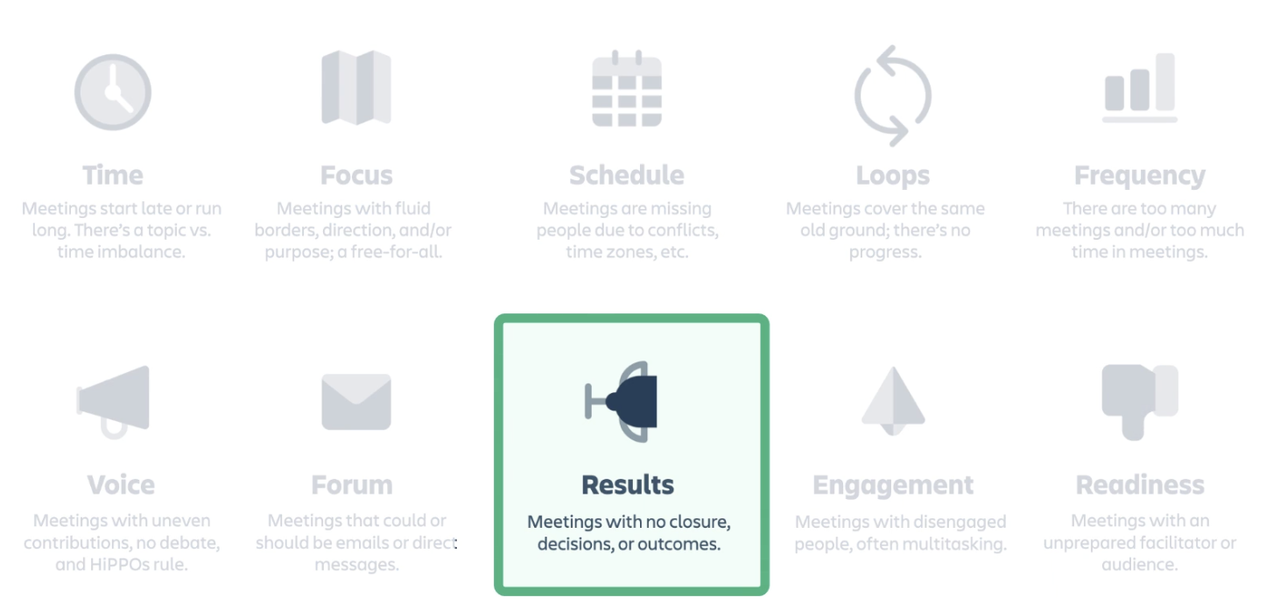
So for us these are some of those core areas why meetings may not be as effective, as they could be.
What is an effective meeting then and what makes it effective?
-
There's a couple things that kind of go into an effective meeting. One, they need to have a pre-established goal. What is it that we're trying to accomplish?
-
Two, they provide value to the people who are attending that meeting. There's an outcome we're going for that people feel like this was a good use of my time.
-
And finally all participants are engaged and they actually leave feeling like hey, I actually got value out of this. This was a good use of my time.
-
Think about this as a sort of a Venn diagram around business outcomes and cultural outcomes.
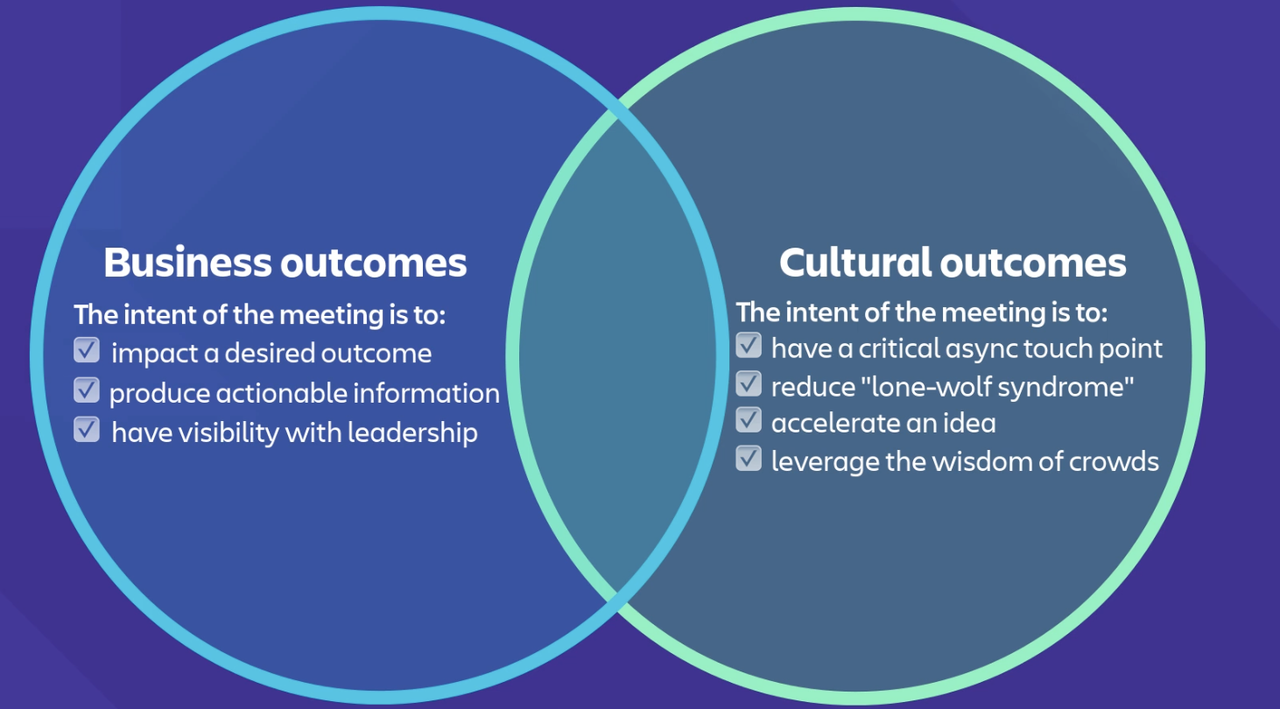
-
Ultimately, it comes down to the "intent." Effective meetings are actually created and run intently.
-
What are the things you're trying to achieve around those spaces? And typically meetings are built around those when we think of our business outcomes.
-
Think about things like is the intent of this meeting to impact a desired outcome. Are we actually trying to make it change happen? Maybe we want to produce actionable information. We want to go into a meeting and come out with stuff that we can make decisions on or we've actually made a decision on.
-
And ultimately we may even want to provide visibility to leadership on how things are going. Or maybe we want to get visibility with leadership to showoff some of the great things we're doing.
-
Then there's the cultural outcomes. We need to think about things like why are we holding this meeting? Because it's a critical touch point in an async world for our team.
-
How do we prevent things like the Lone Wolf syndrome where people don't feel so isolated and disengaged from their work. Is this meeting in place to help us rapidly accelerate on some sort of idea as a team.
-
Or maybe the intent of this meeting is to help us leverage the wisdom of crowds. How do we help bring about this diverse set of experience and knowledge to create something better than any one of us can do ourselves
-
Understanding the intent of an effective meeting is about balancing this business outcome with this cultural outcome. Ultimately in the end, we want to achieve both. And that allows both you and your participants to get the most out of your time together.
Four principles to an effective meeting
PreparationFacilitationParticipationFollow-up
We will be talking about these principles in the next doc.